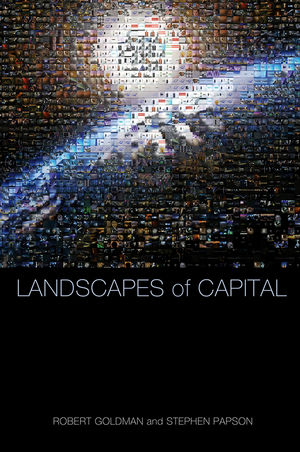Landscapes of CapitalISBN: 978-0-7456-5208-5
Paperback
224 pages
May 2011, Polity
 |
||||||
Every era has its dominant representations. Just as landscape
painters of previous centuries captured and expressed new modes of
perceiving history, corporate advertisers now devise the imagined
landscapes of global capitalism. Advertising functions as an
omnipresent discursive form, publicly assembling and circulating
the predominant tropes of our era. This project is based on the
premise that corporate advertising’s landscapes help shape
our epoch’s imaginative conceptualizations of the spatial
relations, the temporal flows, and the cultural geographies that
correspond to the emergence of a high-tech global economy.
In Landscapes of Capital Robert Goldman and Steven Papson examine how corporate television ads from the last fifteen years have organized predominant images, tropes and narrative representations of a world in transition. The volume takes particular interest in how relations of space, time, speed, capital, technology and globalization are narratively represented in advertising. Goldman and Papson skillfully demonstrate how Capital represents itself at a moment of critical historical transition Ð the passage into high-tech globalization and the crises associated with it. They argue that corporate ads can be read to reveal how Capital represents itself and the world that is being wrought Ð in terms of the signifiers it prefers and the stories it tells.
In Landscapes of Capital Robert Goldman and Steven Papson examine how corporate television ads from the last fifteen years have organized predominant images, tropes and narrative representations of a world in transition. The volume takes particular interest in how relations of space, time, speed, capital, technology and globalization are narratively represented in advertising. Goldman and Papson skillfully demonstrate how Capital represents itself at a moment of critical historical transition Ð the passage into high-tech globalization and the crises associated with it. They argue that corporate ads can be read to reveal how Capital represents itself and the world that is being wrought Ð in terms of the signifiers it prefers and the stories it tells.



